
Ambato: Ecuador's Festival Capital
Nestled in the central highlands of Ecuador, Ambato is a vibrant city known for its dynamic cultural scene and rich history. Often referred to as the 'City of Flowers and Fruits,' Ambato hosts Ecuador's famous Fruit and Flower Festival, a colorful celebration that draws visitors from around the world. The festival takes place every February and showcases the region's agricultural bounty with parades, music, and traditional dances. Ambato's cityscape is a blend of modernity and history. The devastating earthquake of 1949 led to a reconstruction that has given the city a unique architectural character. Visitors can explore the Museo Casa del Portal, which offers insights into the city's past, or stroll through the Juan Montalvo Park, a serene spot perfect for relaxation. Nature enthusiasts will find Ambato to be a gateway to stunning landscapes. The nearby Tungurahua Volcano, still active, presents a dramatic backdrop for the city. Hiking trails and viewpoints around the volcano offer breathtaking vistas and a chance to experience Ecuador's natural beauty firsthand. Additionally, the city is a short drive from the renowned thermal baths of Baños, providing a perfect day trip for those looking to unwind. Ambato is also a culinary haven. The local markets are brimming with fresh produce, and the city's restaurants offer a delectable array of traditional Ecuadorian dishes. Don't miss out on trying the 'llapingachos,' a local specialty made of potato patties filled with cheese and served with a peanut sauce. Overall, Ambato offers a rich cultural experience, stunning natural beauty, and mouth-watering cuisine, making it a must-visit destination in Ecuador.
Local tips in Ambato
- Visit during the Fruit and Flower Festival in February for a vibrant cultural experience.
- Explore the local markets early in the morning for the freshest produce and a true taste of local life.
- Take a day trip to the thermal baths of Baños for relaxation and stunning views.
- Wear comfortable shoes for exploring the city's hilly terrain and cobblestone streets.
- Try the local specialty, llapingachos, at one of Ambato's traditional restaurants.
Ambato: Ecuador's Festival Capital
Nestled in the central highlands of Ecuador, Ambato is a vibrant city known for its dynamic cultural scene and rich history. Often referred to as the 'City of Flowers and Fruits,' Ambato hosts Ecuador's famous Fruit and Flower Festival, a colorful celebration that draws visitors from around the world. The festival takes place every February and showcases the region's agricultural bounty with parades, music, and traditional dances. Ambato's cityscape is a blend of modernity and history. The devastating earthquake of 1949 led to a reconstruction that has given the city a unique architectural character. Visitors can explore the Museo Casa del Portal, which offers insights into the city's past, or stroll through the Juan Montalvo Park, a serene spot perfect for relaxation. Nature enthusiasts will find Ambato to be a gateway to stunning landscapes. The nearby Tungurahua Volcano, still active, presents a dramatic backdrop for the city. Hiking trails and viewpoints around the volcano offer breathtaking vistas and a chance to experience Ecuador's natural beauty firsthand. Additionally, the city is a short drive from the renowned thermal baths of Baños, providing a perfect day trip for those looking to unwind. Ambato is also a culinary haven. The local markets are brimming with fresh produce, and the city's restaurants offer a delectable array of traditional Ecuadorian dishes. Don't miss out on trying the 'llapingachos,' a local specialty made of potato patties filled with cheese and served with a peanut sauce. Overall, Ambato offers a rich cultural experience, stunning natural beauty, and mouth-watering cuisine, making it a must-visit destination in Ecuador.
When is the best time to go to Ambato?
Iconic landmarks you can’t miss
La Casa del Arbol
Discover the charm of La Casa del Arbol, where adventure meets breathtaking views in the heart of Baños, Ecuador.
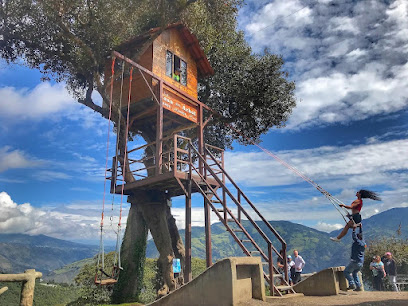
Cevallos Park
Discover tranquility at Cevallos Park in Ambato, Ecuador – a lush retreat filled with natural beauty and vibrant cultural experiences.
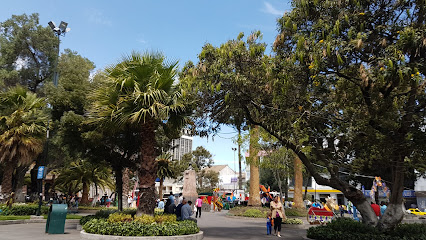
Parque Montalvo
Experience the natural beauty and cultural charm of Parque Montalvo in Ambato, a perfect escape for relaxation and exploration.
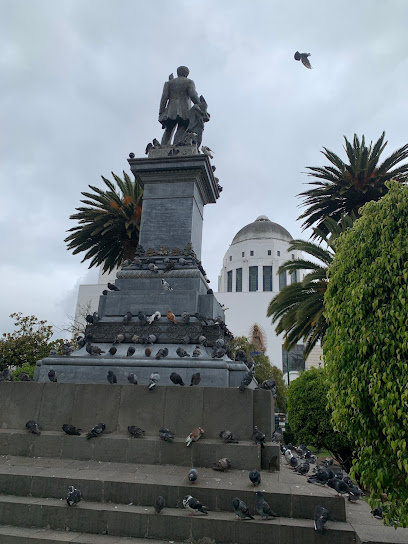
12 de Noviembre Park
Experience the lush beauty and vibrant culture of Ambato at 12 de Noviembre Park, a perfect retreat for relaxation and exploration.
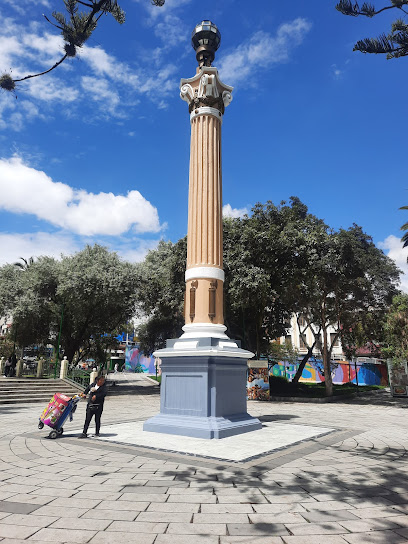
Provincial Park of the Family
Discover the Provincial Park of the Family in Ambato—an idyllic escape filled with nature, recreation, and family-friendly fun for every visitor.
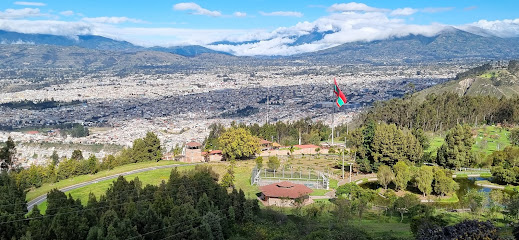
Juan Montalvo Park
Explore the serene beauty of Juan Montalvo Park in Baños de Agua Santa, a lush green retreat perfect for relaxation and family fun amidst stunning Andean scenery.
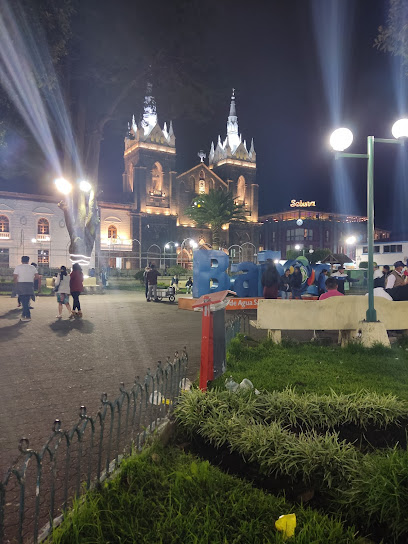
Quinta de Juan León Mera
Explore the rich literary and cultural heritage of Ecuador at the historic Quinta de Juan León Mera museum in Ambato, surrounded by beautiful gardens.
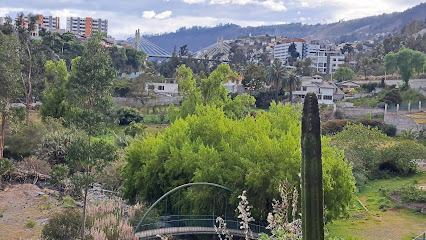
Parque de los Enamorados
Experience romance and tranquility at Parque de los Enamorados, Ambato's stunning ecological park filled with lush landscapes and serene pathways.
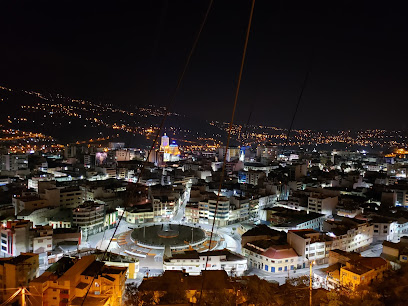
La Aldea Mágica
Discover La Aldea Mágica, a captivating sculpture museum in Baños de Agua Santa, where art and nature beautifully intertwine in a magical experience.
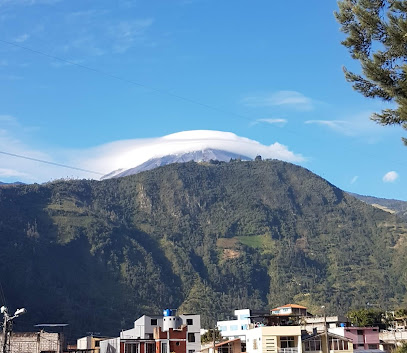
La Catedral
Discover the beauty and serenity of La Catedral in Ambato, a stunning Catholic church and a must-see tourist attraction steeped in history.
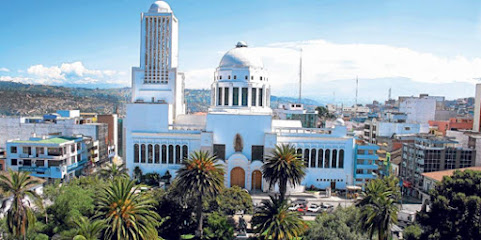
Quinta de Juan Montalvo
Explore the legacy of Ecuadorian literature at Quinta de Juan Montalvo, a serene history museum surrounded by beautiful gardens.
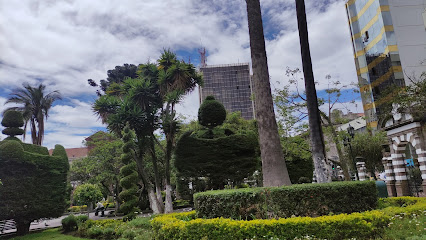
Casa Del Portal
Explore the captivating art and culture of Ecuador at Casa Del Portal, a premier art museum in Ambato showcasing diverse artistic expressions.
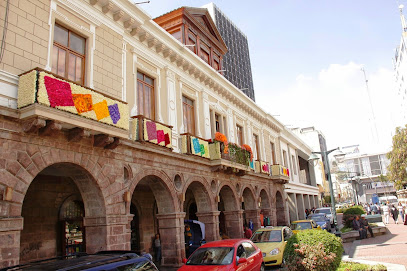
Casa de Juan Montalvo
Explore the Casa de Juan Montalvo, a tribute to Ecuador's literary heritage and the life of Juan Montalvo in Ambato's picturesque setting.
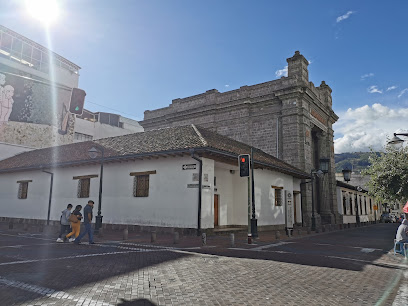
Iglesia Católica del Barrio Solís
Experience the architectural beauty and spiritual essence of Ambato at the Iglesia Católica del Barrio Solís, a must-visit for all travelers.
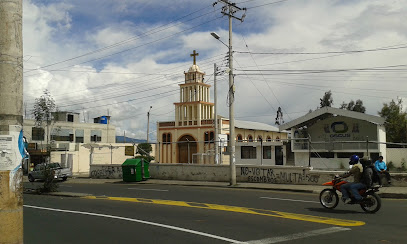
Letras Ambato
Explore the artistic heart of Ambato at Letras Ambato, a cultural hub celebrating literature and creativity in Ecuador.
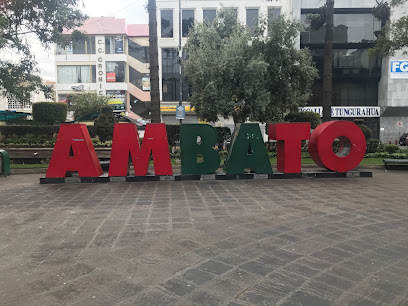
Unmissable attractions to see
La Casa del Arbol
Experience the breathtaking views and thrilling swings at La Casa del Arbol in Baños de Agua Santa, a must-visit attraction for every traveler.
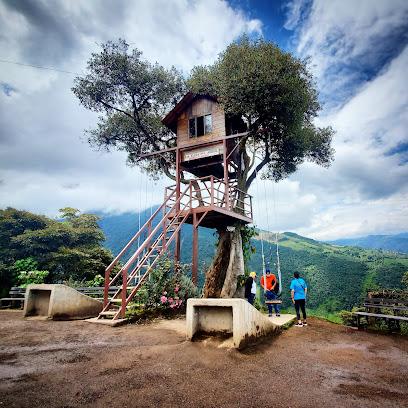
CASCADA EL PAILÓN
Experience the breathtaking beauty of Cascada El Pailón, a stunning waterfall surrounded by lush landscapes in Río Verde, Ecuador.
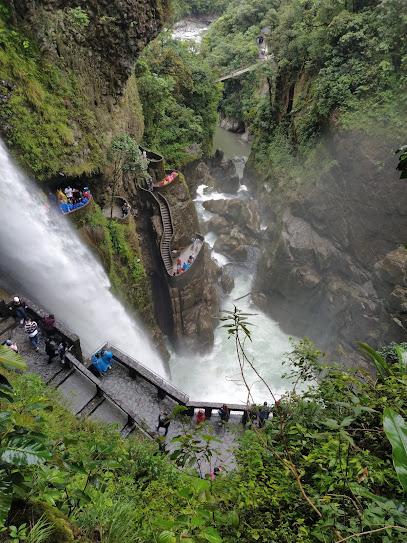
Cevallos Park
Discover the serene beauty of Cevallos Park in Ambato, Ecuador - a vibrant park perfect for relaxation, recreation, and cultural immersion.
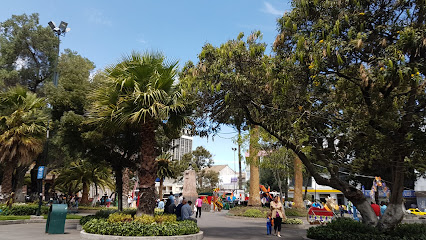
Parque de Las Flores
Discover the enchanting beauty of Parque de Las Flores in Ambato, Ecuador, a vibrant park ideal for relaxation and floral wonders.
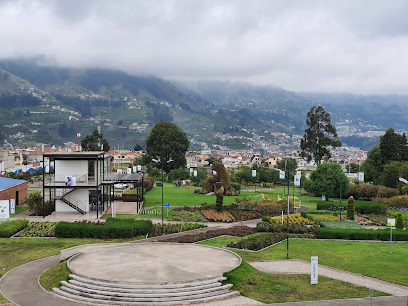
Parque Montalvo
Experience the beauty and tranquility of Parque Montalvo, Ambato's lush park, perfect for relaxation, recreation, and cultural exploration.
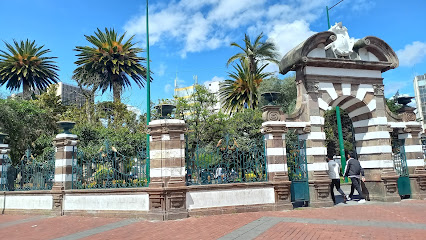
12 de Noviembre Park
Explore the lush landscapes and vibrant community spirit of 12 de Noviembre Park in Ambato, a serene escape for nature lovers and culture enthusiasts.
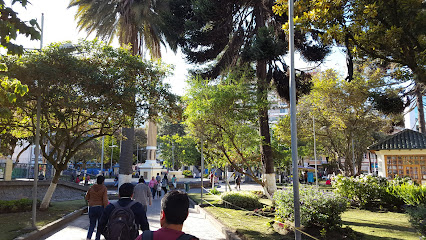
Provincial Park of the Family
Explore the lush landscapes and family-friendly activities at Ambato's Provincial Park of the Family, a perfect urban retreat for nature lovers.
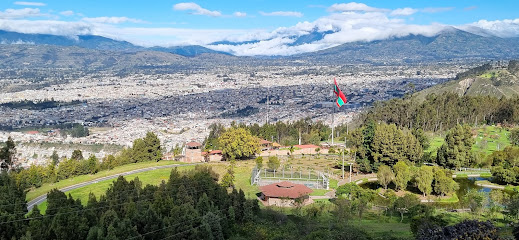
Luis A. Martínez Park
Discover the tranquility and beauty of Luis A. Martínez Park in Ambato, a lush escape perfect for relaxation and outdoor activities amidst nature's charm.
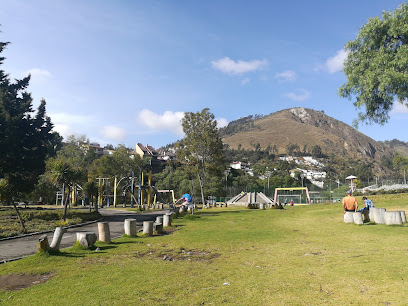
Eco zoológico San Martín
Experience the rich biodiversity and conservation efforts at Eco Zoológico San Martín in Baños de Agua Santa, a family-friendly destination for wildlife enthusiasts.
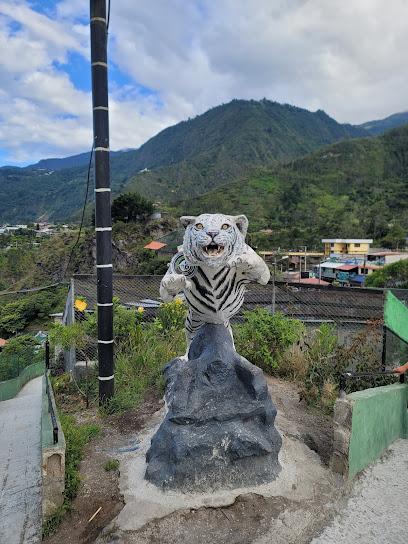
La Cordillera de los Llanganates
Explore La Cordillera de los Llanganates, Ecuador's stunning national park with diverse landscapes, rich culture, and thrilling outdoor activities.
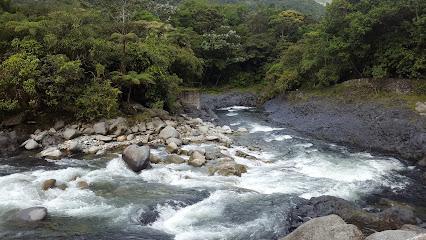
Quinta de Juan León Mera
Explore the rich cultural heritage of Ecuador at Quinta de Juan León Mera, a historical museum celebrating the life of a literary icon.
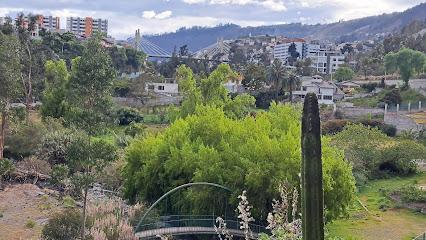
Toachi River Canyon
Experience the breathtaking beauty of Toachi River Canyon, a top tourist attraction in Ecuador, known for its stunning views and rich biodiversity.
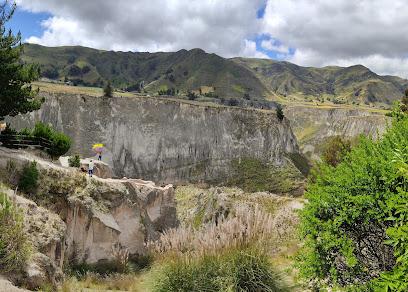
Cascada Manto de la Novia
Explore the enchanting beauty of Cascada Manto de la Novia, a breathtaking waterfall in Agoyán, Ecuador, surrounded by lush landscapes and vibrant nature.
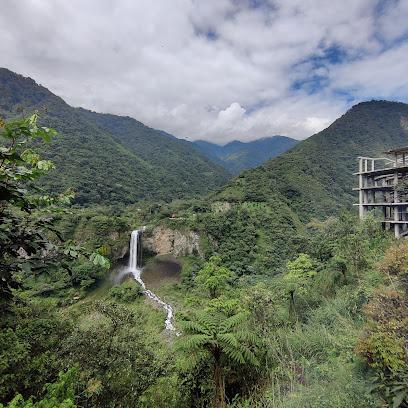
Imagine Ecuador - Tour Operator Baños
Discover the best of Baños, Ecuador with Imagine Ecuador - your gateway to thrilling adventures, breathtaking landscapes, and unforgettable experiences.
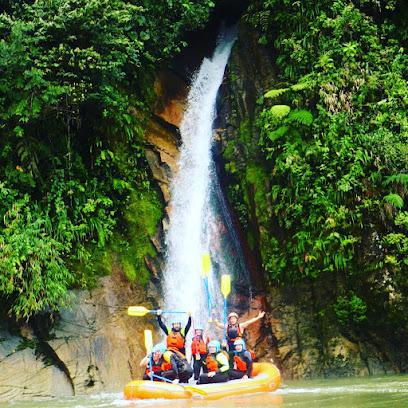
Carrel Refuge
Experience the breathtaking beauty of the Andes at Carrel Refuge, a cozy mountain hut perfect for adventurers and nature lovers alike.
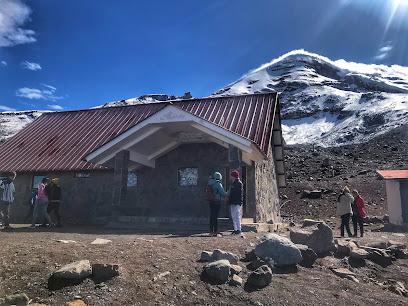
Essential places to dine
JUANCHOS STEAK HOUSE
Discover Juanchos Steak House in Ambato – where every meal is a celebration of flavor with grilled delights and live piano music.
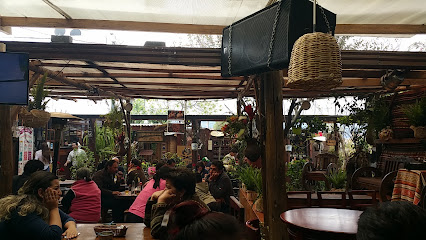
The Grant Restaurant - Buffet Ambato
Experience authentic Ecuadorian flavors at The Grant Restaurant - Buffet Ambato; where diverse cuisines meet warm hospitality.
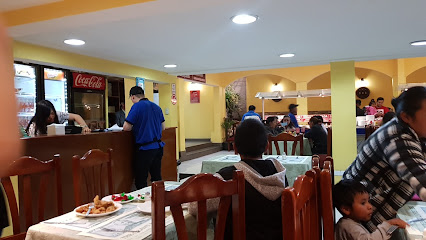
Chilaquile Comida Mexicana
Experience authentic Mexican cuisine at Chilaquile Comida Mexicana in Ambato - where every dish tells a story.
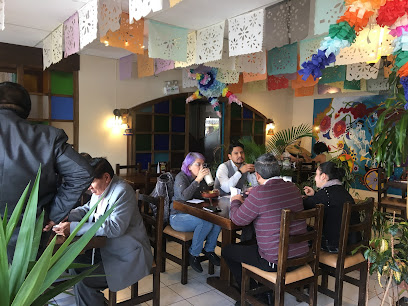
Candies Restaurant & Cafeteria
Discover authentic Ecuadorian cuisine blended with international flavors at Candies Restaurant & Cafeteria in Ambato.
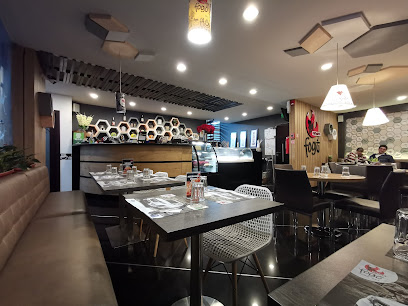
El Rey del Burrito
Savor authentic Mexican cuisine at El Rey del Burrito in Ambato – where every bite tells a flavorful story.
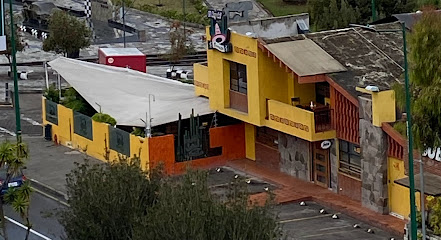
COMMA
Discover the exquisite blend of local flavors and modern cuisine at COMMA in Ambato - where every meal tells a story.
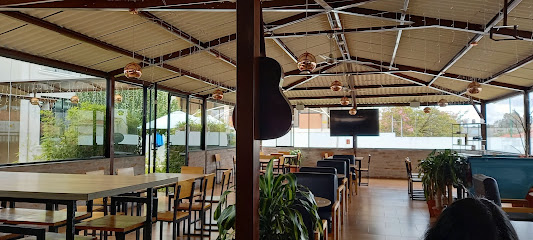
TEDYS
Savor authentic Ecuadorian cuisine at TEDYS in Saraguros - where every dish tells a story.
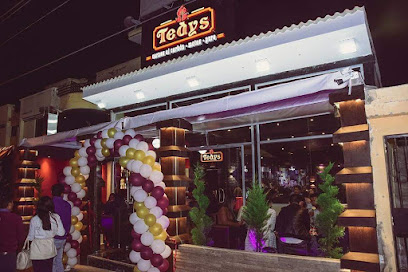
Doble filo
Savor authentic Argentinian cuisine at Doble Filo in Ambato - where every dish tells a story.
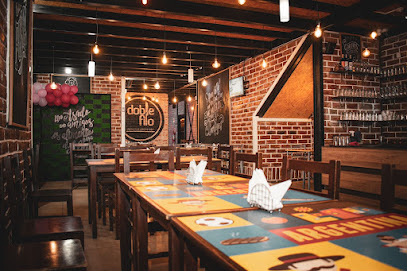
Azahar Cocina
Experience authentic Argentinian cuisine at Azahar Cocina in Ambato—where every dish tells a flavorful story.
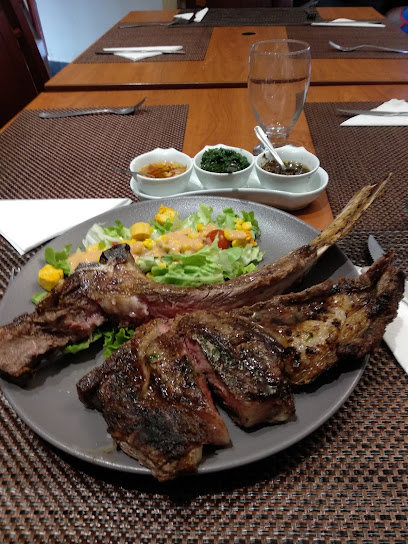
El 10 Sport Parrilla
Experience the vibrant flavors of Ecuadorian cuisine at El 10 Sport Parrilla in Ambato – where great food meets sports enthusiasm.
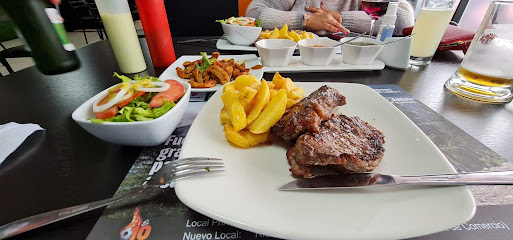
El Alamo Chalet
Discover the rich flavors of Ecuador at El Alamo Chalet – a must-visit restaurant in Ambato offering delightful local and international cuisine.
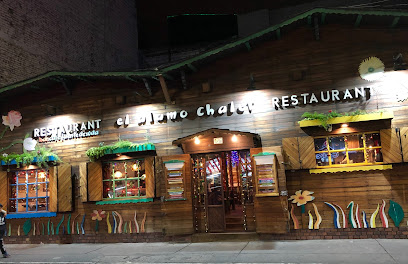
Mama Miche Marisquería
Discover authentic Ecuadorian seafood at Mama Miche Marisquería in Ambato - where fresh flavors meet warm hospitality.
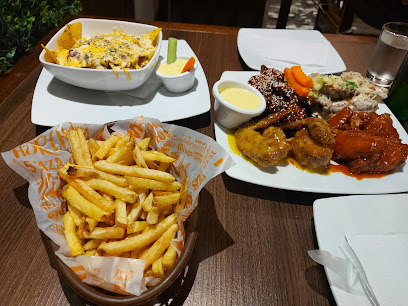
Ushuaia Fuego y Vino Ecuador
Savor the rich flavors of Ecuador at Ushuaia Fuego y Vino in Ambato - a culinary haven for food lovers.
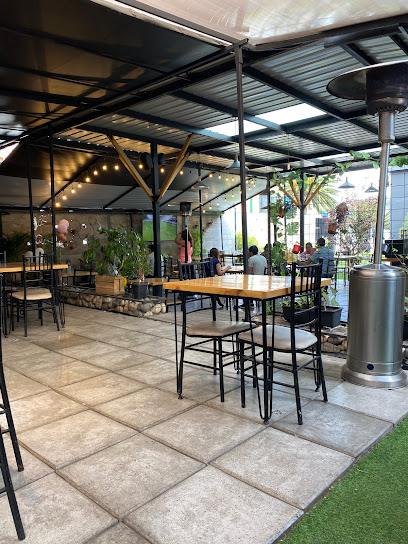
La Creme Restaurant
Discover the flavors of Ecuador at La Creme Restaurant in Ambato - where exquisite cuisine meets inviting ambiance.
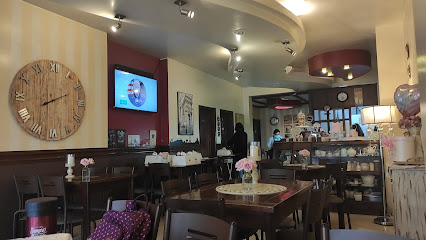
ROKA SUSHI
Experience exquisite sushi fused with French culinary artistry at ROKA SUSHI in Ambato - a must-visit for food enthusiasts.
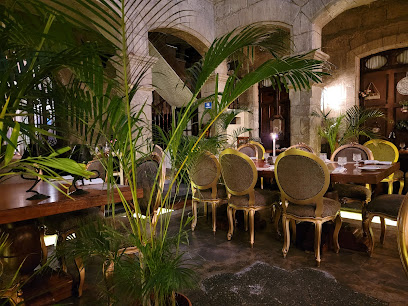
Markets, malls and hidden boutiques
El Paseo Shopping Ambato
Discover a vibrant shopping experience at El Paseo Shopping Ambato, where local culture meets international brands in a modern mall setting.
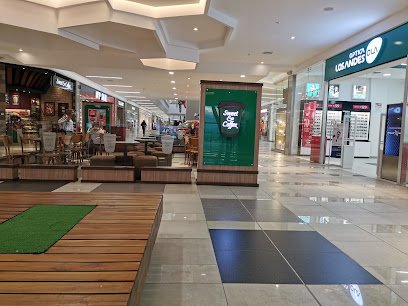
SEXBOUTIQUE - AMBATO - SEXSHOP
Explore Ambato's SEXBOUTIQUE, a one-of-a-kind gift shop offering an intriguing selection of adult-themed products and unique gifts for the adventurous shopper.
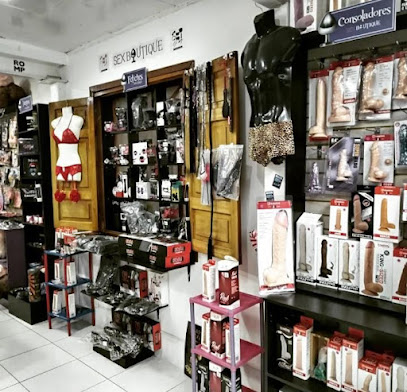
RITA Shopping
Discover fashionable clothing and footwear at RITA Shopping in Ambato, a must-visit destination for stylish tourists seeking unique finds.

Olivia Store
Explore unique fashion at Olivia Store in Ambato, blending local culture with contemporary styles for an unforgettable shopping experience.
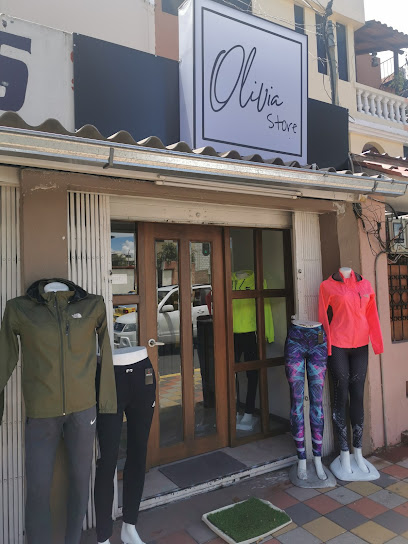
Women Boutique
Explore Women Boutique in Ambato for unique, stylish clothing that embodies elegance and modern fashion trends for every occasion.
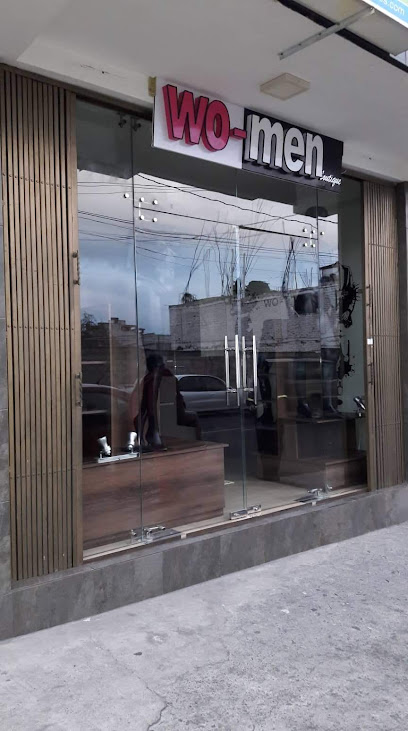
ANGELES STORE
Explore the unique styles and local craftsmanship at Angeles Store, a boutique treasure in Ambato, Ecuador.

Mandii Boutique
Explore Mandii Boutique in Ambato for a unique shopping experience featuring stylish clothing and local fashion trends.
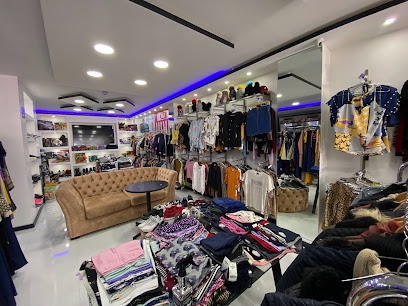
Latinos Boutique
Explore fashionable treasures at Latinos Boutique, where local style meets unique flair in Ambato, Ecuador.
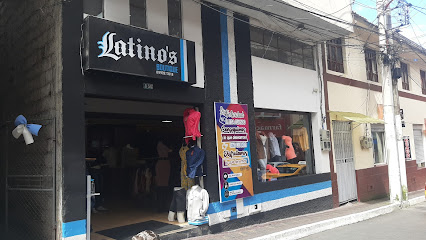
Josephine
Explore Josephine in Ambato, Ecuador, where contemporary fashion meets local culture in a charming boutique setting.

KAROLA
Explore KAROLA Gift Shop in Ambato for unique Ecuadorian souvenirs that capture the essence of local craftsmanship and culture.
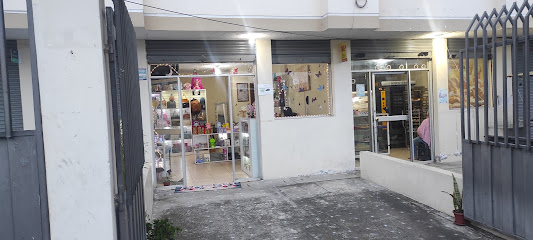
Ana Shop
Discover unique Ecuadorian fashion at Ana Shop in Ambato, where contemporary meets tradition in a welcoming boutique atmosphere.

Belen´s Shop
Experience the vibrant fashion scene at Belen's Shop in Ambato, Ecuador – where local style meets contemporary trends.
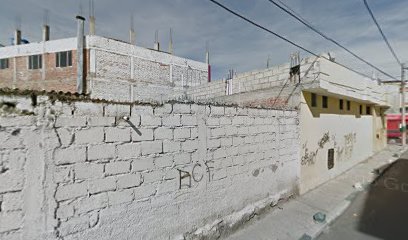
Lili Pink - El Paseo Shopping Ambato
Explore the vibrant styles and accessories at Lili Pink in El Paseo Shopping, Ambato – a must-visit destination for fashion enthusiasts.

IGLOO Paseo Shopping Ambato
Explore the vibrant world of fashion at IGLOO Paseo Shopping Ambato, where local style meets contemporary trends in an inviting atmosphere.

Frees Store
Explore the finest Ecuadorian jewelry at Frees Store, a hidden gem in Ambato that blends elegance with local craftsmanship.

Essential bars & hidden hideouts
Bar Rock El Oso
Discover the vibrant nightlife at Bar Rock El Oso in Ambato, where delightful drinks and a lively atmosphere await.
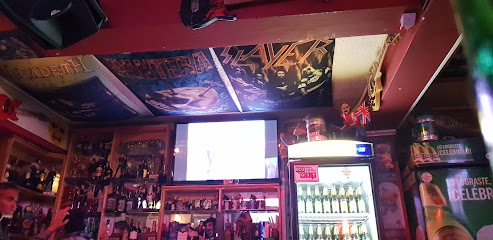
Drink And Go
Discover the vibrant nightlife of Ambato at Drink And Go, where delicious drinks and a lively atmosphere await you.
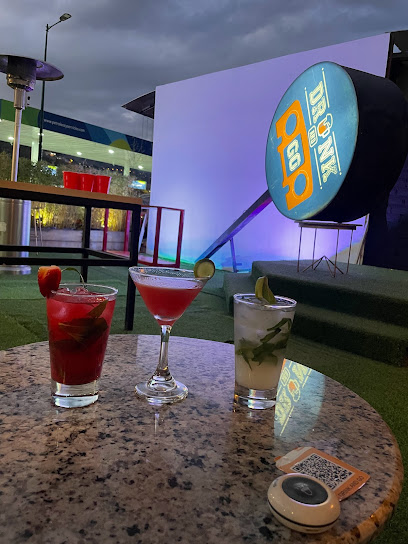
LONDON Pub
Discover the lively atmosphere at LONDON Pub, Ambato’s premier bar for nightlife, socializing, and entertainment.
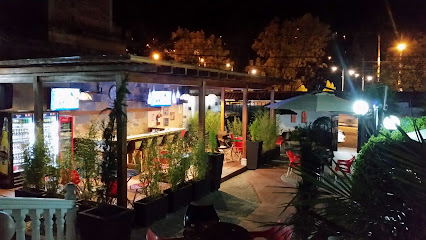
Fratelli's bar
Experience the lively atmosphere of Fratelli's Bar in Ambato, where locals and travelers unite over drinks and vibrant live music.
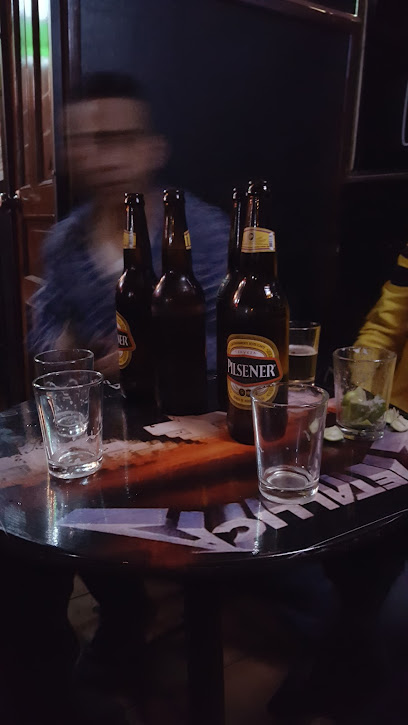
SANTUCHO BAR
Experience the vibrant nightlife at Santuco Bar in Ambato, Ecuador, where refreshing drinks, live music, and a lively atmosphere await.
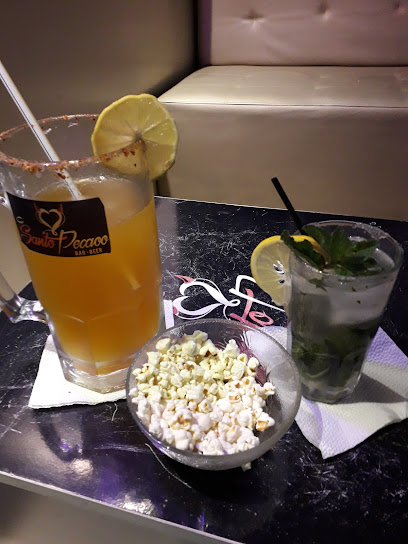
Psikop Rock Bar
Experience the electrifying vibe of Psikop Rock Bar in Ambato, where live music and refreshing cocktails create unforgettable nights.
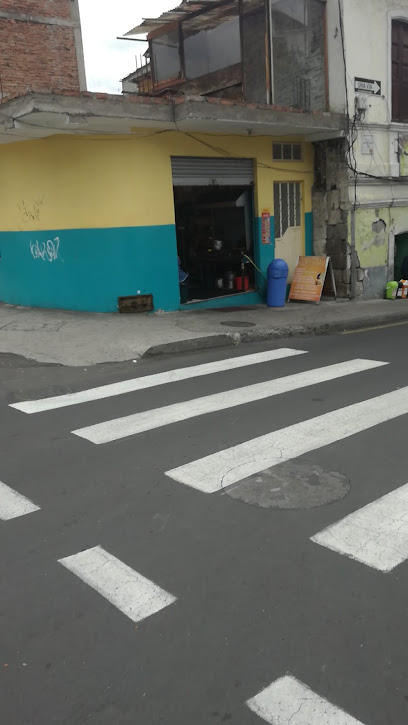
Pop’s Lounge Bar
Discover the vibrant atmosphere of Pop's Lounge Bar in Ambato, where relaxation meets local culture through delightful drinks and live music.
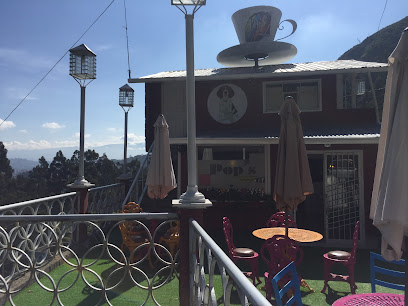
El Balcón café bar
El Balcón café bar in Ambato offers a unique blend of gourmet pizzas and crafted cocktails in a vibrant, welcoming atmosphere.
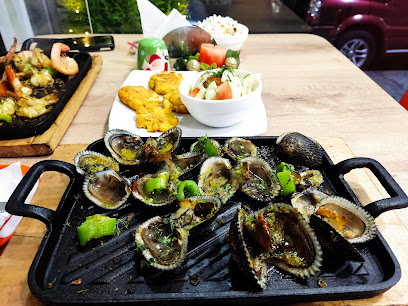
The Coffee Dream
Experience the rich flavors of coffee and the vibrant atmosphere at The Coffee Dream, a must-visit bar in Ambato, Ecuador.
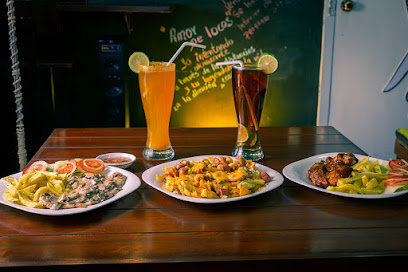
Blue Moon - Bar
Experience the vibrant nightlife at Blue Moon, an iconic bar in Ambato known for its cocktails, local brews, and lively atmosphere.
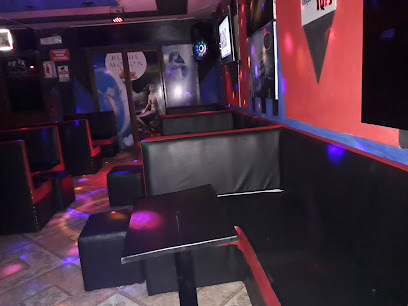
Bongo's Bar
Experience the vibrant nightlife of Ambato at Bongo's Bar, where great drinks and lively music come together in a colorful atmosphere.
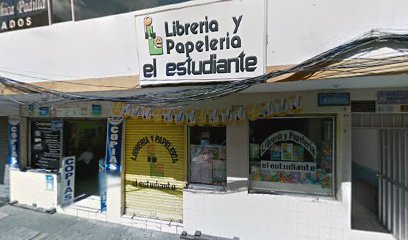
Mistiko
Experience the vibrant nightlife of Ambato at Mistiko, where exceptional drinks and a lively atmosphere await every visitor.
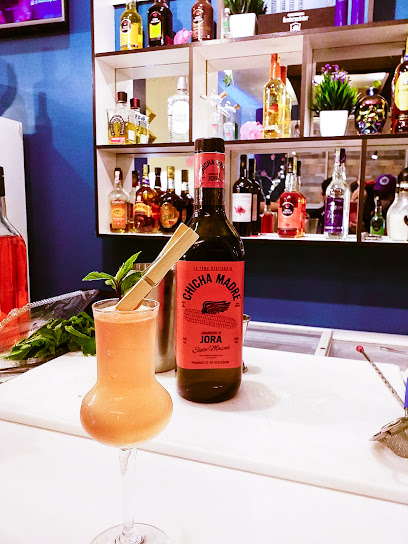
DRINKING´S BAR discoteck
Unwind at DRINKING´S BAR in Ambato, where vibrant nightlife meets delicious drinks and a lively atmosphere for an unforgettable evening.
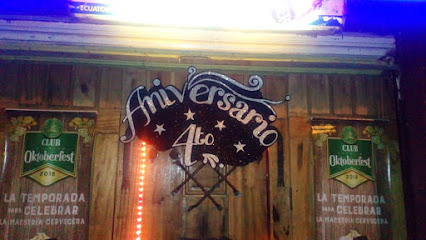
Lemije's Bar
Experience the vibrant nightlife of Ambato at Lemije's Bar, where local flavors and friendly vibes make for an unforgettable evening.
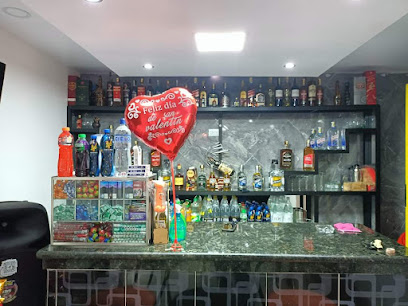
Local Phrases
-
- HelloHola
[oh-lah] - GoodbyeAdiós
[ah-dee-ohs] - YesSí
[see] - NoNo
[noh] - Please/You're welcomePor favor/De nada
[por fah-vohr/de nah-dah] - Thank youGracias
[grah-see-ahs] - Excuse me/SorryDisculpe/Lo siento
[dees-kool-pe/loh see-en-toh] - How are you?¿Cómo estás?
[koh-moh ehs-tahs] - Fine. And you?Bien. ¿Y tú?
[bee-ehn. ee too] - Do you speak English?¿Hablas inglés?
[ah-blahs een-glehs] - I don't understandNo entiendo
[noh ehn-tee-ehn-doh]
- HelloHola
-
- I'd like to see the menu, pleaseMe gustaría ver el menú, por favor
[meh goo-stah-ree-ah vehr ehl meh-noo, por fah-vohr] - I don't eat meatNo como carne
[noh koh-moh kahr-neh] - Cheers!Salud!
[sah-lood] - I would like to pay, pleaseMe gustaría pagar, por favor
[meh goo-stah-ree-ah pah-gahr, por fah-vohr]
- I'd like to see the menu, pleaseMe gustaría ver el menú, por favor
-
- Help!¡Ayuda!
[ah-yoo-dah] - Go away!¡Vete!
[veh-teh] - Call the Police!¡Llama a la policía!
[yah-mah ah lah poh-lee-see-ah] - Call a doctor!¡Llama a un médico!
[yah-mah ah oon meh-dee-koh] - I'm lostEstoy perdido/a
[ehs-toy pehr-dee-doh/dah] - I'm illEstoy enfermo/a
[ehs-toy ehn-fehr-moh/dah]
- Help!¡Ayuda!
-
- I'd like to buy...Me gustaría comprar...
[meh goo-stah-ree-ah kohm-prahr...] - I'm just lookingSolo estoy mirando
[soh-loh ehs-toy mee-rahn-doh] - How much is it?¿Cuánto cuesta?
[kwan-toh kwes-tah] - That's too expensiveEsto es demasiado caro
[ehs-toh ehs deh-mah-syah-doh kah-roh] - Can you lower the price?¿Puede bajar el precio?
[pweh-deh bah-har ehl pree-syoh]
- I'd like to buy...Me gustaría comprar...
-
- What time is it?¿Qué hora es?
[keh oh-rah ehs] - It's one o'clockEs la una
[ehs lah oo-nah] - Half past (10)Media (10)
[meh-dee-ah (dheez)] - MorningMañana
[mah-nyah-nah] - AfternoonTarde
[tahr-deh] - EveningNoche
[noh-cheh] - YesterdayAyer
[ah-yehr] - TodayHoy
[oy] - TomorrowMañana
[mah-nyah-nah] - 1Uno
[oo-noh] - 2Dos
[dohs] - 3Tres
[trehs] - 4Cuatro
[kwah-troh] - 5Cinco
[seen-koh] - 6Seis
[says] - 7Siete
[syeh-teh] - 8Ocho
[oh-choh] - 9Nueve
[nweh-veh] - 10Diez
[dyehs]
- What time is it?¿Qué hora es?
-
- Where's a/the...?¿Dónde está...?
[dohn-deh ehs-tah] - What's the address?¿Cuál es la dirección?
[kwal ehs lah dee-rehk-syon] - Can you show me (on the map)?¿Puedes mostrarme (en el mapa)?
[pweh-dehs mohs-trahr-meh (ehn ehl mah-pah)] - When's the next (bus)?¿Cuándo es el próximo (autobús)?
[kwan-doh ehs ehl proh-ksee-moh (ow-toh-boos)] - A ticket (to ....)Un boleto (a ....)
[oon boh-leh-toh (ah ....)]
- Where's a/the...?¿Dónde está...?
History of Ambato
-
Ambato is nestled in the central highlands of Ecuador and its history dates back to pre-Columbian times. The area was originally inhabited by the indigenous Panzaleo people, who were known for their advanced agricultural techniques and intricate pottery. Evidence of their presence can still be found in archaeological sites around the city.
-
In the 16th century, Spanish conquistadors arrived in the region, leading to significant changes in the local culture and society. Ambato was officially founded on December 6, 1698, by Spanish settlers. The influence of Spanish architecture and Catholicism is still evident in the city’s historic buildings and churches.
-
The city of Ambato has been shaped by several devastating earthquakes throughout its history. One of the most significant was the earthquake of 1698, which occurred shortly after the city’s founding. This disaster led to the reconstruction of many buildings and had a lasting impact on the city’s development.
-
Ambato played a crucial role in Ecuador's struggle for independence from Spanish rule. During the early 19th century, the city became a center for revolutionary activity. Notable figures such as Juan Montalvo, a prominent writer and political thinker, emerged from Ambato and contributed to the intellectual and political discourse of the time.
-
On August 5, 1949, Ambato was struck by one of the most catastrophic earthquakes in Ecuador’s history. The earthquake caused extensive damage to the city’s infrastructure and resulted in a significant loss of life. The city was subsequently rebuilt with modern architectural styles, and the event is commemorated annually with a memorial service.
-
One of the most vibrant cultural events in Ambato is the Festival of Fruits and Flowers, which takes place every February during Carnival. This festival originated in the 1950s as a way to celebrate the city’s recovery from the 1949 earthquake. It features parades, music, dance, and elaborate displays of fruits and flowers, showcasing the region’s agricultural bounty and cultural heritage.
-
Juan Montalvo, born in Ambato in 1832, is one of Ecuador’s most celebrated writers and intellectuals. His essays and books criticized the political and social issues of his time, advocating for democratic reforms. Montalvo’s legacy is honored in Ambato with a museum dedicated to his life and works, as well as several statues and public spaces named after him.
-
Today, Ambato is a bustling city known for its commerce, especially in agriculture and floriculture. The city’s markets are filled with a variety of local produce, including the famous Ambato pears. Modern Ambato blends its rich historical heritage with contemporary developments, making it a unique destination for travelers interested in both history and modern culture.
Ambato Essentials
-
Ambato is located in the central region of Ecuador. The nearest major airport is Mariscal Sucre International Airport in Quito, approximately 150 kilometers away. From Quito, you can take a bus or a private car to Ambato. The bus journey typically takes around 3 to 4 hours and is a cost-effective option. Alternatively, you can hire a taxi or use a ridesharing service for a more comfortable and faster journey.
-
Ambato has a well-organized public transportation system, including buses and taxis. Buses are the most economical way to get around the city, with routes covering most areas. Taxis are also readily available and relatively inexpensive. For more flexibility, consider renting a car, but be aware that traffic can be heavy during peak hours. Walking is a great way to explore the city center and its main attractions.
-
The official currency in Ecuador is the US Dollar (USD). Credit cards are widely accepted in hotels, restaurants, and larger stores in Ambato. However, it is advisable to carry some cash for small purchases and in rural areas where card payments may not be available. ATMs are plentiful throughout the city, so you can withdraw cash as needed.
-
Ambato is generally a safe city for tourists, but it's important to stay vigilant. Avoid walking alone at night in less populated areas, such as the neighborhoods of La Merced and El Socavón, which have higher crime rates. Keep an eye on your belongings in crowded places like markets and bus stations. Use registered taxis or ridesharing services for safer transportation.
-
In case of emergency, dial 911 for immediate assistance. Ambato has several hospitals and clinics, including Hospital Docente Ambato and Hospital Municipal Nuestra Señora de La Merced, which provide medical services. It is recommended to have travel insurance that covers medical emergencies. Pharmacies are available throughout the city for minor health issues and over-the-counter medications.
-
Fashion: Do dress comfortably and modestly. Avoid wearing flashy jewelry and expensive accessories that might attract unwanted attention. Religion: Do respect local customs and religious practices, especially when visiting churches. Public Transport: Do keep your belongings close and be mindful of pickpockets. Don't eat or drink on public transport. Greetings: Do greet people with a friendly 'Buenos días' or 'Buenas tardes.' A handshake is also common. Eating & Drinking: Do try local foods like 'llapingachos' and 'cuy.' Don't refuse food offerings as it can be considered impolite.
-
To experience Ambato like a local, visit the Mercado Central to enjoy fresh produce and local dishes. Engage with locals, especially during the annual Festival of Fruits and Flowers, which showcases the city's culture and traditions. Don't miss the Parque de la Familia, a beautiful park offering panoramic views of the city. For a unique experience, visit the Casa del Portal, an iconic cultural center in Ambato.
Trending Landmark in Ambato
-
La Casa del Arbol
-
Cevallos Park
-
Parque Montalvo
-
12 de Noviembre Park
-
Provincial Park of the Family
-
Juan Montalvo Park
-
Quinta de Juan León Mera
-
Parque de los Enamorados
-
La Aldea Mágica
-
La Catedral
-
Quinta de Juan Montalvo
-
Casa Del Portal
-
Casa de Juan Montalvo
-
Iglesia Católica del Barrio Solís
-
Letras Ambato
Nearby Cities to Ambato
-
Things To Do in Tena
-
Things To Do in Quito
-
Things To Do in Macas
-
Things To Do in Mindo
-
Things To Do in Otavalo
-
Things To Do in Guayaquil
-
Things To Do in Ibarra
-
Things To Do in Cuenca
-
Things To Do in Manta
-
Things To Do in Salinas
-
Things To Do in Pasto
-
Things To Do in Loja
-
Things To Do in Popayán
-
Things To Do in Piura
-
Things To Do in Cali








